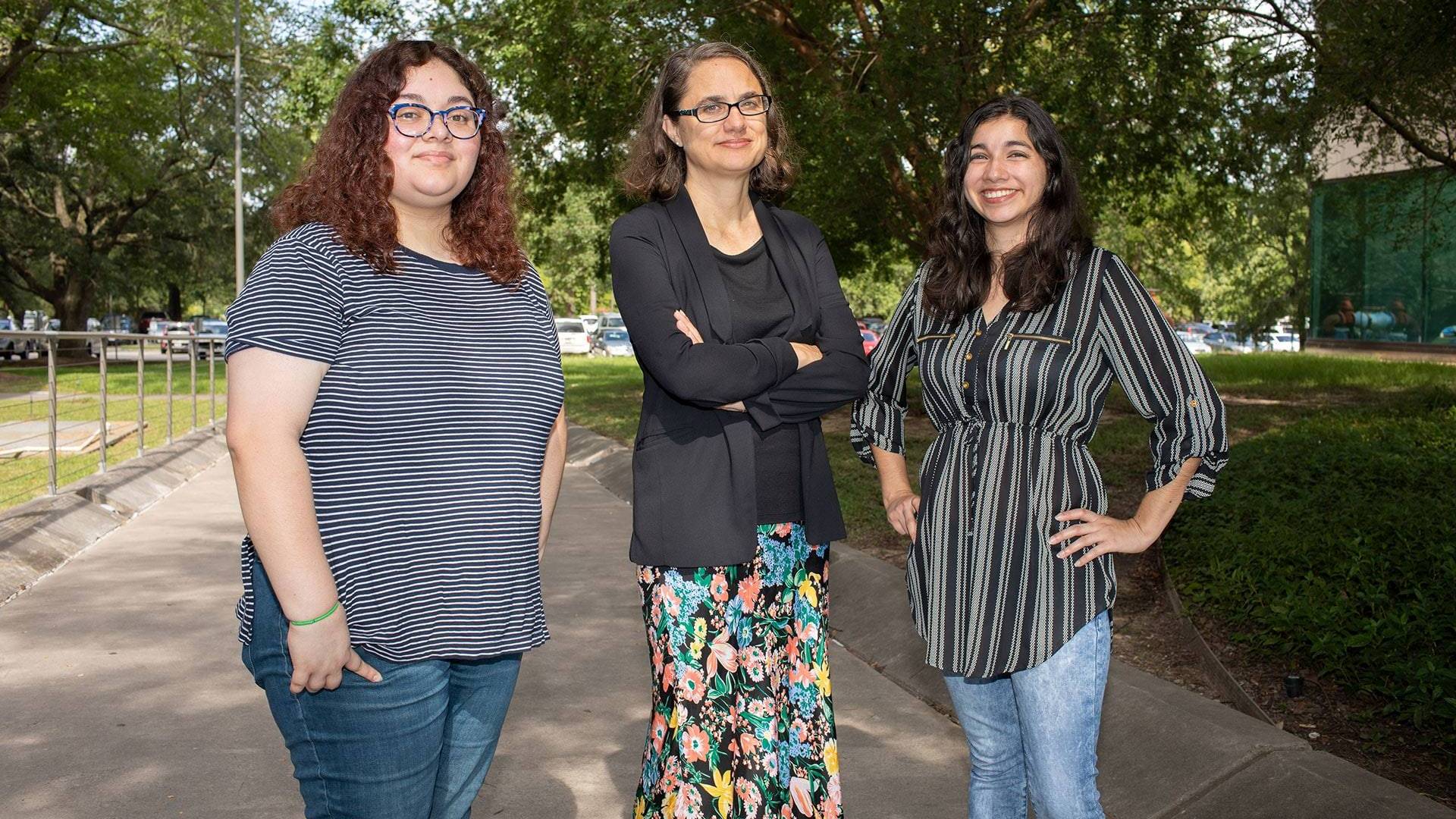Anthropology prof and students win grant to study migrant health issues
August 14, 2019 | UHCL Staff
Professor of Anthropology and Cross-Cultural and Global Studies Christine Kovic has been awarded a grant from Research Programs on Migration and Health, known as
PIMSA for its Spanish acronym. The grant supports collaboration between a U.S. university
and an institution in Mexico to better understand the factors and policies impacting
the mental and physical health of migrants.
“The grant allowed our research partners in Mexico — the director of a non-profit
organization called Voces Mesoamericanas and a professor from the Universidad Autónoma
Metropolitana — to come to Texas to meet with different organizations that work with
migrants in Houston and on the border. We also visited a respite center in McAllen,
Texas where volunteers take in migrants who are being released from detention,” Kovic
said. “I also went to southern Mexico and visited detention centers and shelters there.
I saw what local groups are doing to respond to the situation facing migrants on the
Mexico-Guatemala border.”
Kovic said that one unique aspect of the project is examining how local and regional
organizations are addressing migrant health issues. “One of many pieces of the project
that took place in Mexico was making short videos of organizations in that region
that are serving as shelters for migrants, how they’re attending to their health care
needs, and ways in which they’re incorporating indigenous knowledge of healing to
support women who are being released from detention,” she said.
Sarai Aguilar, a senior student completing her Bachelor of Arts in Humanities with a minor in anthropology, has been assisting Kovic with research and translating, along with Bachelor of Science in Anthropology senior student Natalia Mendez.
“I’ve been transcribing and translating, and I’ve been keeping a list of migrants
who have died in U.S. Immigration and Customs Enforcement and U.S. Border Protection
custody, including some who died shortly after being released,” Aguilar said. “We
are focusing on how the human rights issue of detainment relates to physical health
as well as mental health. I have been studying the circumstances of each death, some
of which are suicides. When people are kept in cold conditions and the lights stay
on all day and night, it interferes with peoples’ sleep-wake cycles and affects their
overall health.”
Mendez said the videos were being translated to English because the Mexican organizations
want understanding on a wider basis. “All the organizations talked about the need
to have more public awareness about migration and the experiences of migrants,” she
said. “The mental health, or psycho-social element, is part of the research. There
is a stigma everywhere that exists because of a lack of understanding about why migrants
are leaving or what their conditions were. Guatemalans entering Mexico are not necessarily
welcomed with open arms.”
Kovic said the information and research they were compiling was not just for academics.
“It will be accessibly written for people in many organizations in Mexico and elsewhere,”
she said. “That way, people can learn more about the health of migrants and how people
are responding. The project is particularly relevant in the current context because
it does not takes migrants as an object of research, but is a collaboration with migrant
organizations to better understand root causes affecting health and together exploring
policy changes to improve health."
Find our more about UHCL’s Bachelor of Science in Anthropology online.
About the Author:
Recent entries by
October 18 2022
Better technology transforms campus safety: Police Chief demonstrates SafeZone to students
October 14 2022
Student's skill with drones takes chicken turtle research to new heights
October 11 2022
Planting event to help UHCL restore native plants to campus, support environmental sustainability







